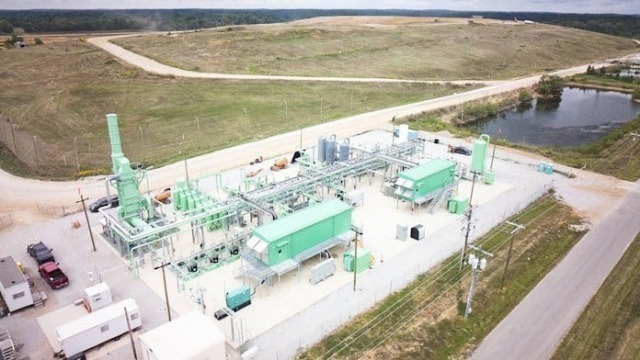BP’s renewable energy subsidiary, Archaea Energy, has officially initiated operations at its pioneering Archaea Modular Design (AMD) renewable natural gas (RNG) plant in Medora, Indiana. This marks a significant milestone as the first plant to be activated following BP’s acquisition of Archaea in December 2022.
Situated adjacent to Rumpke Waste and Recycling’s landfill, the Medora plant employs the AMD design to capture landfill gas and convert it into electricity, heat, or renewable natural gas. This innovative process contributes to cleaner air, reduced odor, and a more sustainable energy source compared to traditional fossil fuel-based energy.
The Medora plant has the capacity to process 3,200 cubic feet of landfill gas per minute (scfm) into RNG. According to the EPA’s Landfill Gas Energy Benefits Calculator, this volume of RNG can effectively heat approximately 13,026 homes on an annual basis.
Starlee Sykes, CEO of Archaea Energy, has emphasized the importance of the project in their net-zero journey and their commitment to providing customers with lower emission, lower carbon fuel. The company aims to activate several AMD plants across the US within the year.
Traditionally, RNG plants have been custom-built; however, the Archaea Modular Design offers a groundbreaking approach by enabling plants to be constructed on skids with interchangeable components. This standardized modular design results in faster builds compared to previous industry standards.
Jeff Rumpke, Area President of Rumpke Waste & Recycling, lauded the collaboration, stating, “The addition of Archaea Energy’s RNG plant at our site will help further reduce emissions and give residents and businesses assurance that their waste is not only being properly disposed of – but also being put to good use.”
Following the acquisition of Archaea, BP has become the largest RNG producer in the US, enhancing its capacity to support customers’ decarbonization goals and advancing its ambition to reduce the average lifecycle carbon intensity of the energy products it sells.
Bioenergy stands as one of five strategic transition growth engines for BP, set to rapidly grow throughout this decade and expected to deliver around $2 billion EBITDA in 2025, with a target of surpassing $4 billion by 2030. In addition to bioenergy, BP’s transition growth engines include convenience, EV charging, renewables & power, and hydrogen.
BP plans to invest up to $8 billion more in its transition growth businesses within this decade, aiming to reach over 40 percent of its total annual capital expenditure by 2025, with a goal to increase this to approximately 50 percent by 2030.

